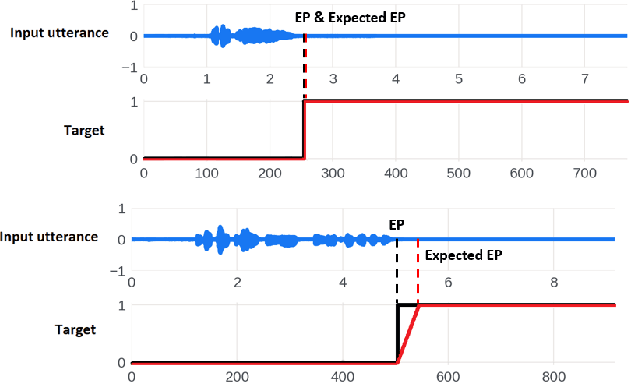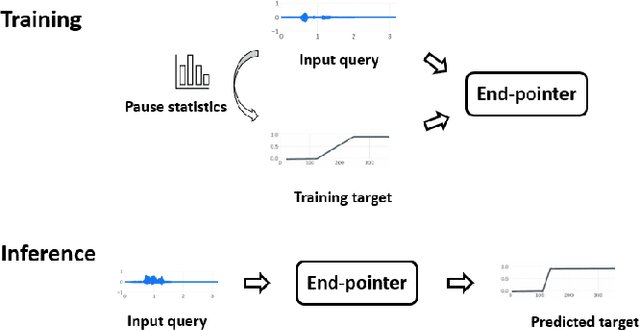Dynamic Speech Endpoint Detection with Regression Targets
Paper and Code
Oct 25, 2022



Interactive voice assistants have been widely used as input interfaces in various scenarios, e.g. on smart homes devices, wearables and on AR devices. Detecting the end of a speech query, i.e. speech end-pointing, is an important task for voice assistants to interact with users. Traditionally, speech end-pointing is based on pure classification methods along with arbitrary binary targets. In this paper, we propose a novel regression-based speech end-pointing model, which enables an end-pointer to adjust its detection behavior based on context of user queries. Specifically, we present a pause modeling method and show its effectiveness for dynamic end-pointing. Based on our experiments with vendor-collected smartphone and wearables speech queries, our strategy shows a better trade-off between endpointing latency and accuracy, compared to the traditional classification-based method. We further discuss the benefits of this model and generalization of the framework in the paper.
 Add to Chrome
Add to Chrome Add to Firefox
Add to Firefox Add to Edge
Add to Edge